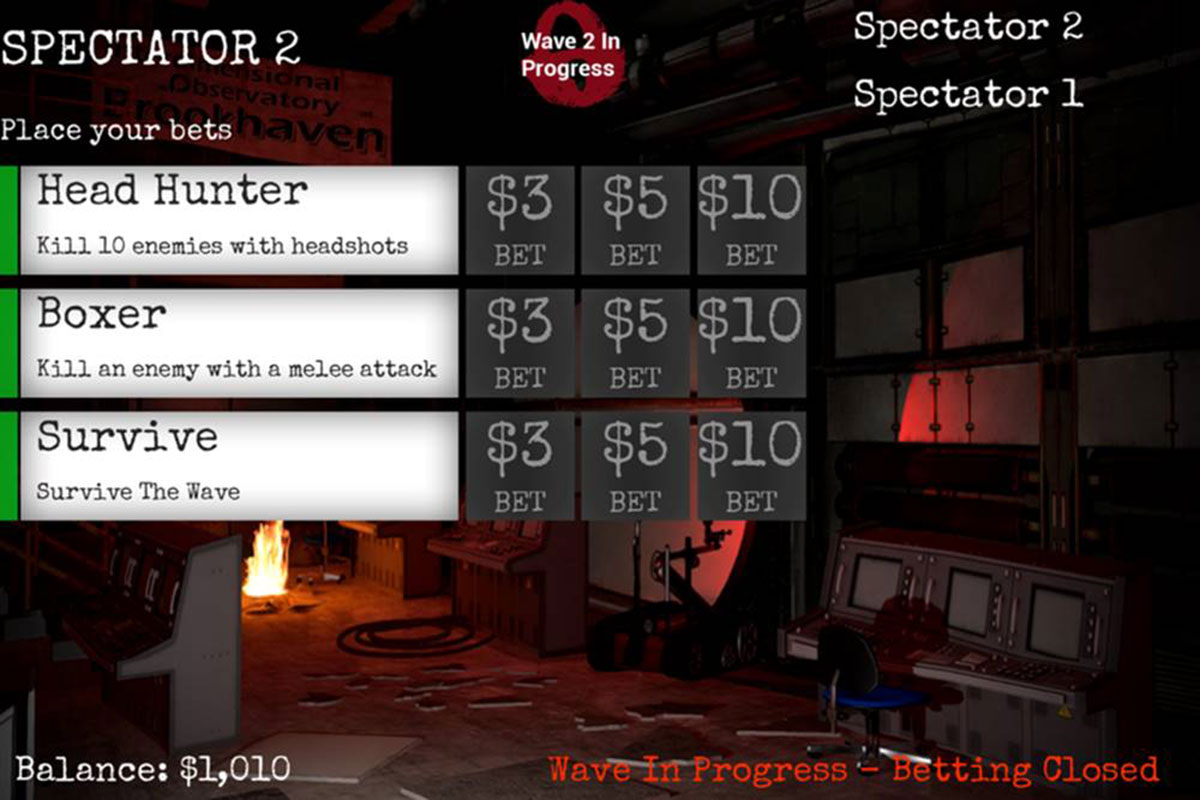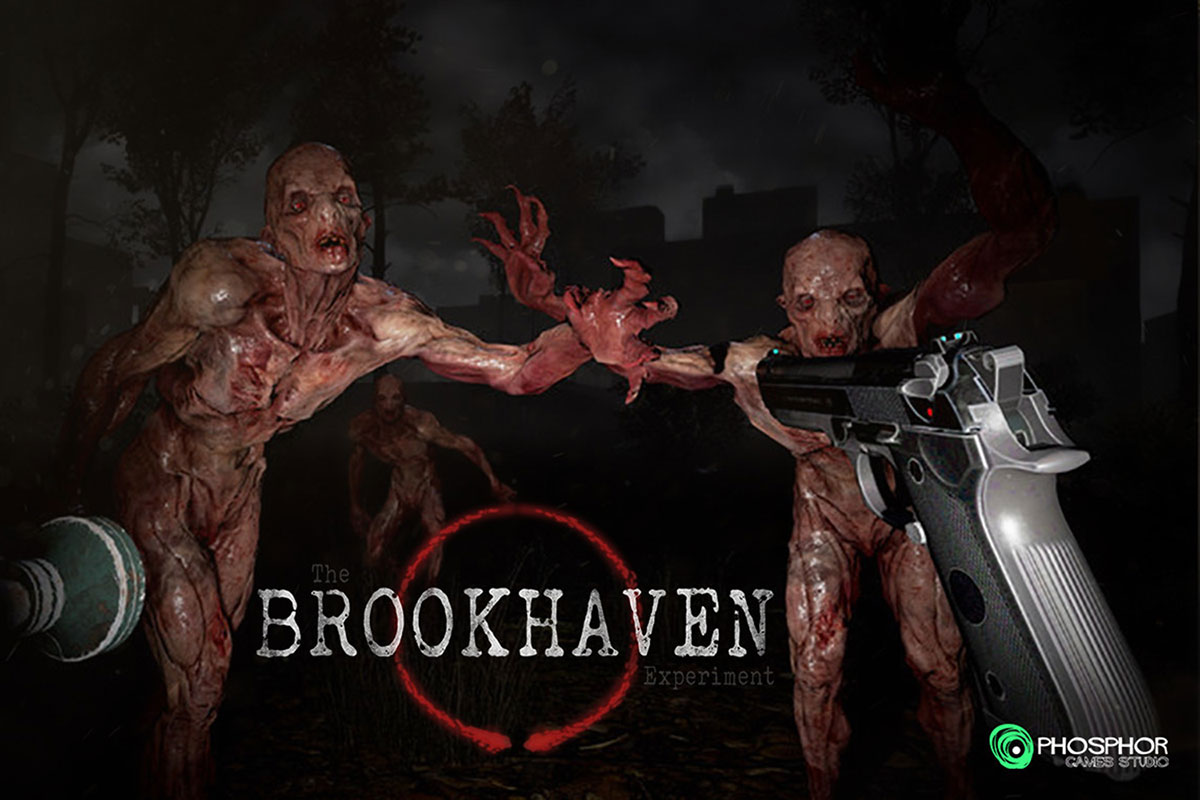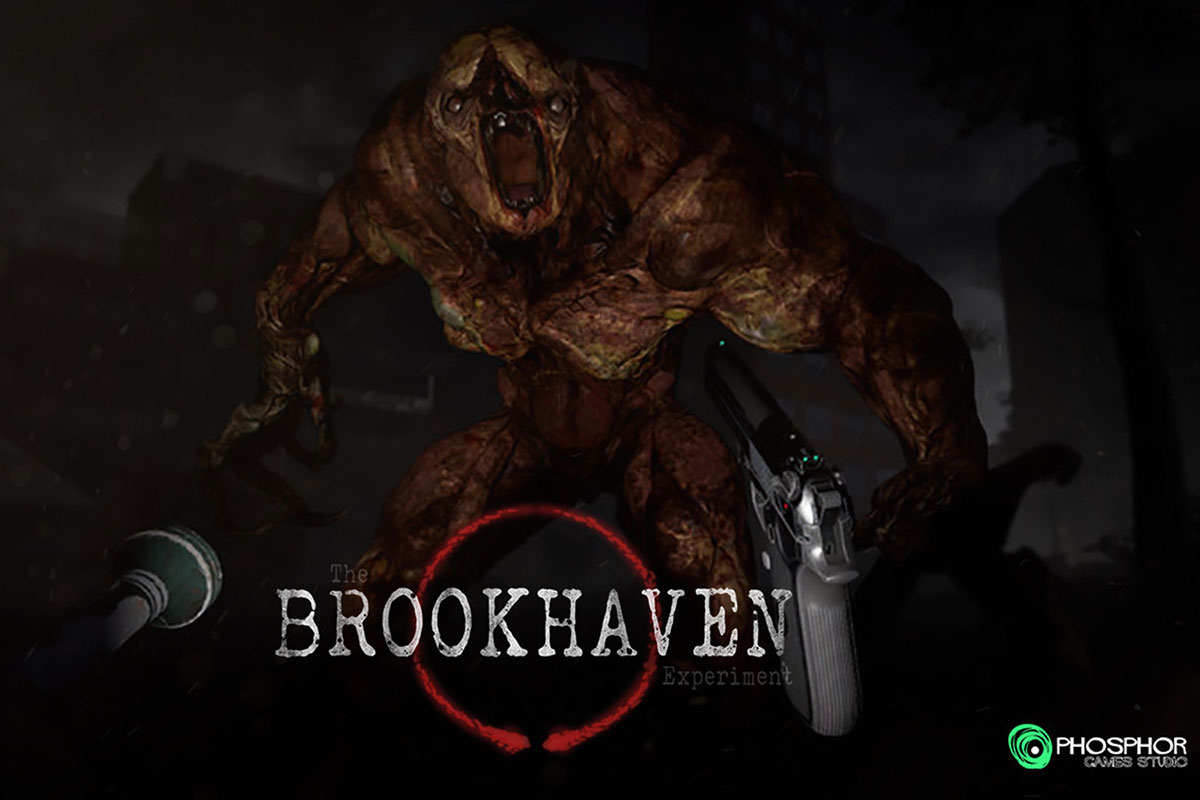Virtual reality is set to invade casinos in 2017, courtesy of Gamblit Gaming. The company has built a customized Virtual Reality Cube (VRC) powered by the HTC Vive, which can play special versions of video games designed for betting. Phosphor Games is the first traditional game developer to partner with Gamblit, and is turning its critically acclaimed VR horror game, The Brookhaven Experiment, into a game of skill.
The VRC running the first-person shooter debuts at the Global Gaming Expo (G2E) in Las Vegas Sept. 27-29. Darion Lowenstein, Chief Marketing Officer at Gamblit Gaming, told Digital Trends the VRC will appear in U.S. casinos, beginning the second half of 2017.
“The Brookhaven Experiment is an amazing game, but we wanted to make it more theatrical, because it’s going to be sitting on the casino floor,” Lowenstein said. “We wanted to make the VR experience social.”
What’s in the box?
The VRC is a giant glass box in which the player is elevated on a stage and surrounded by LED lighting. The HTC Vive headset is suspended from the ceiling, so there’s no chord to trip over. A fog machine pumps fog into the cube, while a giant subwoofer in the floor thumps and bumps, providing an audio – and tactile – element. Monitors are placed outside the box, so spectators have a window into the player’s virtual world.
“The monsters coming at you can be eight to 12 feet tall.”
Justin Corcoran, CEO of Phosphor Games Studio, told Digital Trends that the modified version of The Brookhaven Experiment focuses more on fast-paced, arcade-style gameplay. The studio has added additional targets and an element of chance, which offers multiple layers to bet real money on. There are three rounds of action, and the game will last up to five minutes, depending on how quickly the monsters kill you.
“The experience is essentially the same as the Challenge mode in the current game, which offers a single setting in a fixed position where the player can move around in the cube space and have waves of monsters coming at them,” Corcoran said. “In addition to the monsters coming at you, which can be eight to 12 feet in size, we have secondary targets in the background that we’ve designed exclusively for this version.”
Virtual gaming, real money
Players can choose between a $15, $20 or $25 bet upon entering the cube. In addition, each player is given three random challenges of increased difficulty level, like surviving the 5-minute experience with 70 percent of health remaining, or completing the entire experience with only a melee weapon. Spectators can choose to bet on whether the player will achieve these three challenges.
Lowenstein said that depending on how well the player does, he or she could win back his initial entry fee — or even triple it. But he did caution that completing all three challenges is rare.
Everything in the game, from the challenges, to the weapons, to the monster layout, is randomly generated, Corcoran said gamers who have a Vive and practice at home can hone their skills to be better prepared for entering the VRC. Awesome gun upgrades, like an Uzi with a laser sight or a shotgun, can be acquired – but they will run out of ammo, leaving players with only a knife. Every shot counts.
The VRC experience at G2E dropped gamers right into the action. Corcoran said the final version will offer a more streamlined arcade experience with a bit more story, though the limitations of a 5-minute game are a constraint. One option would be to use the outside monitors to run a video loop while people are transitioning in and out. This could set up the story, much like a Disneyland ride often relays exposition while people are in queue.
The beginning of a trend?
While The Brookhaven Experiment is the launch experience, the VRC is a platform, not a one-off solution. That means additional Vive games could be modified for gambling, and players could have a choice down the line of what experience they play. But the launch game was chosen for a reason, and Lowenstein think it’ll be a hit.
“We’re all big VR fans,” Lowenstein said. “I grew up watching Lawnmower Man. We saw videos of people freaking out and screaming playing this game online and that’s how we discovered Brookhaven. We reached out to Phosphor and told them what we wanted to do, and here we are.”
Those who don’t own a Vive, or just want to experience The Brookhaven Experience, also have a non-gambling option. Corcoran has worked with Valve to include both the home version’s campaign and challenge modes in a special arcade version of the Vive, which is already popping up in arcades and entertainment centers across the U.S.
Betting on virtual reality games may sound strange. Video game gambling remains controversial, as recent bans handed out by Valve to Counter-Strike players prove. Time has proven that people will bet on almost anything that’s enjoyable to watch – so why not VR?






